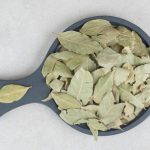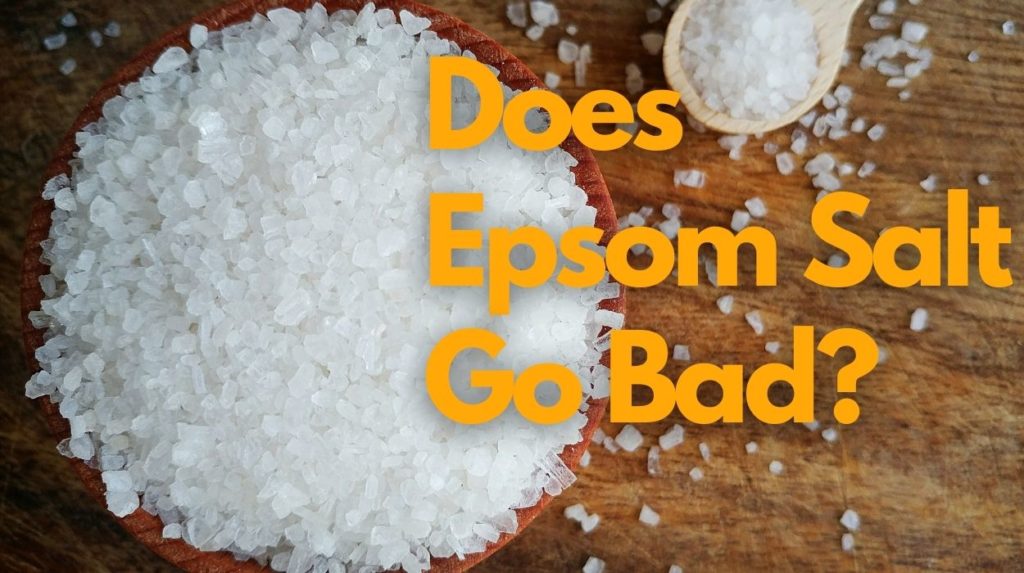
A long productive Friday, followed by a nice, long, warm bath, can kickstart the weekend on the right and relaxing note. People with muscle pain rely on Epsom salt to make their baths even more calming and de-stressing due to its muscle-relieving properties.
But since Epsom salt has limited purposes, you might wonder about its expiration. For all those who are worried- no, your Epsom salt does not expire, but it will eventually get clumpy and hard.
However, the time frame can be extended with the correct storage techniques so that you can use your Epsom salt for a long period. Read ahead and learn the most practical storage methods to prolong its usability.
What Is The Shelf Life Of Epsom Salt?
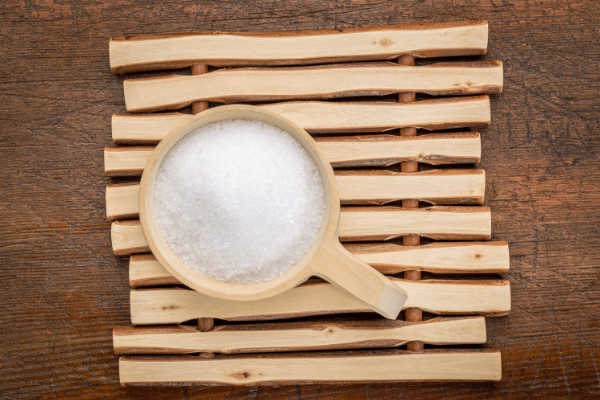
Despite what its name suggests, Epsom salt is not similar to your table salt.
Epsom salt is, also known as Magnesium Sulfate, is a chemical compound consisting of oxygen and, as the name suggests – magnesium and sulfur.
The presence of Magnesium Sulfate is also the reason why Epsom salt has a prolonged period for which it stays in usable condition, and it’s hard for it to go bad early.
So how can one know for how long will Epsom salt stay in good condition?
The best way to know this is to check the expiry date at the back of the packet and add 2-3 years.
Will it stay good even after its expiry date has passed?
Yes! Epsom salt being a chemical compound, unless it comes in contact with moisture, will not go bad soon!
The expiry date on the back of the container is a regulatory guideline that manufacturers have to follow. It tells you the time until which the Epsom salt will “look” the same way that it did when you first opened the bottle/container.
After that, it might start to look a bit different, but if stored correctly, it will stay safe to use!
Overall you can say that Epsom salt has no real expiry date, but the table below shows you the time till which it will stay in top condition giving you effective results!
| Pantry ( in a cool dark place) | Pantry (under room temperature) | |
| Epsom salt | Five to six years | One year |
Now let’s see how you can tell if Epsom salt has gone bad-
How To Tell If Epsom Salt Has Gone Bad?
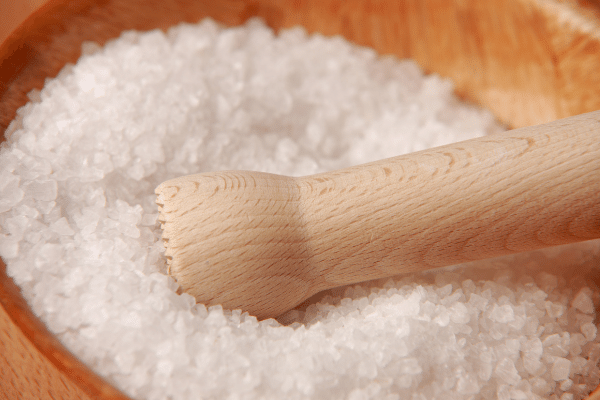
As mentioned in the above section, Epsom salt does not go bad or become dangerous to use. But after a specific time, due to certain conditions, it may lose its efficacy – i.e., its effectiveness.
Here are some signs to look for-
-
Epsom salt has become hard
When exposed to moisture, Epsom salt will turn hard. Suppose you store Epsom salt in a small container.
In that case, you can put the container in the microwave and make it lose the moisture, but if you store it in a big container like buckets, it will not be possible to microwave it; hence you can drill into the hardened salt to break it into pieces which you can then bake.
-
It seems contaminated
Epsom salt cannot support life on itself; hence there are low chances of it ever getting contaminated by a living organism like mold or worms.
But Epsom salt might get contaminated, considering how you have stored it. If the container of Epsom salt is open, sometimes things might fall into it and contaminate it.
For people who use Epsom salt for external purposes (as bath salts)-
When that happens, you can scoop out the contaminating substance and use the Epsom salt,
Or you can remove the amount of Epsom salt that has been contaminated and use the remaining amount.
For people who use Epsom salt for internal purposes (for consumption)-
If you notice that your container of Epsom salt has been contaminated, it is advisable to throw it away and not eat it, as the foreign substance might lead to health complications.
Tip- Store your Epsom salt in containers with airtight lids to prevent contamination.
- It looks discolored
As time progresses, Epsom salt may start losing its color, or contamination of Epsom salt might lead it to change color.
If something like this happens and you cannot put your finger on what might have contaminated it, you should not eat it!
What Happens If You Eat Or Drink Expired Epsom Salt?
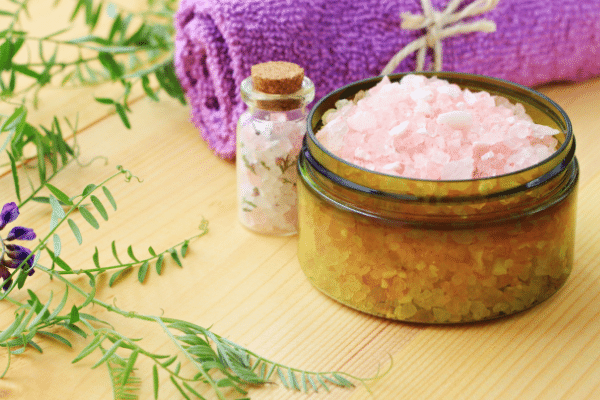
Epsom salt is a chemical compound hence does not expire per se but might become less effective. Eating expired Epsom salt will not cause any medical damage.
A point to note is that Epsom salt is a laxative; hence when you consume it, you can expect unpleasant reactions.
In some cases eating or drinking more than a moderate amount may lead to an upset stomach, bloating, and nausea. This is not a reaction to the salt being expired, but the laxative property of magnesium is causing it.
Can You Freeze Epsom Salt?
Yes, you can! But freezing of Epsom salt is not required; storing it in an airtight container in your pantry will keep it practical and in the best condition for years!
Mixing Epsom salt in water and storing it in the freezer will cause it to form crystals.
Refrigerated Vs. Shelf Stable
Epsom salt being a chemical compound, does not require refrigeration. It can stay in good condition, even on your pantry shelf.
Refrigerated
Epsom salt is a chemical compound and, like other chemical compounds, does not require refrigeration.
When you put Epsom salt in hot water, it will bind with the water, which will absorb it hence forming a mixture.
But if you store the mixture in a fridge, the magnesium sulfate molecules will pull themselves away from the water molecules and form a crystal structure. Hence it would help not to store an Epsom salt mixture in the fridge.
Shelf Stable
You can keep magnesium sulfate or Epsom salt comfortably on your pantry counter like all salts.
The only thing to keep in mind while storing Epsom salt is to make sure it is away from moisture as it will cause it to harden.
What Is The Best Way To Store Epsom Salt?
The only enemy that your Epsom salt has is moisture, so you should work to eliminate moisture exposure to keep it in top condition for long.
You can follow the below-mentioned steps-
-
Keep It Away From Moisture
We have said it repeatedly, but moisture is the only major threat to your Epsom salt.
Store your container of Epsom salt in a place that is away from moisture. A closed dry cabinet in your pantry will work best!
Tip: Keep uncooked rice grains in the container with your Epsom salt. Rice is known to absorb moisture. Hence it will help remove moisture from the container!
-
Store It In An Airtight Container
Airtight containers prevent air from entering, hence blocking off air’s moisture.
Store your Epsom salt in a closed airtight container to keep it effective for a long time!
Close the lid of the container as soon as you are done removing the salt to keep maximum safety
-
Store In A Dark Place
Storing your Epsom salt in a dark place away from sunlight will help it retain its color and efficacy for a long time. This will also ensure that your Epsom salt does not form lumps.
Store your Epsom salt in a dark container in a cabinet that is not exposed to sunlight.
-
Close The Lid
The second enemy to Epsom salt after moisture is contamination.
It usually gets contaminated by air-borne particles; hence to prevent contamination, you should store your Epsom salt in a container with a tightly closed lid.
Alternatives for Epsom Salt if it Goes Bad
Even though Epsom salt takes its jolly good time to go bad, there’s no harm in trying other substitutes when you cannot get your hands on it.
- Sea salt
- Baking soda
- Apple cider vinegar
- Oatmeal
- Essential oil
FAQ
Q.Can you store Epsom salt in a plastic container?
Yes, you can store Epsom salt in a plastic container. This will not harm the salt in any way. But for maximum protection, make sure that the container is airtight.
.
Q. What to do when Epsom salt gets clumpy?
When you add any oil to Epsom salt, it will turn clumpy, sticky, and moist, which is completely fine!
The bath salt is still safe to be used on your body! If you want to have a clump-free bath salt, simply bake your mixture in an oven for about 15 minutes, and voila! You have a clump-free bath salt mixture.
Q. Can you use regular salt instead of Epsom salt for infection?
Regular salt can be used instead of Epsom salt for infection. Its antibacterial and antifungal properties can soothe any pain or discomfort.
The Bottom Line
Epsom salt is your best friend in helping soothe your body after a tedious activity!
With this article, you now know that Epsom salt does not get spoilt easily and that it should not be exposed to moisture. Keeping it in an airtight container is the best way to store it.
You should definitely try out all the storage methods, though, to see which one works better for you.
Did you find this information useful? Let us know in the comments!


